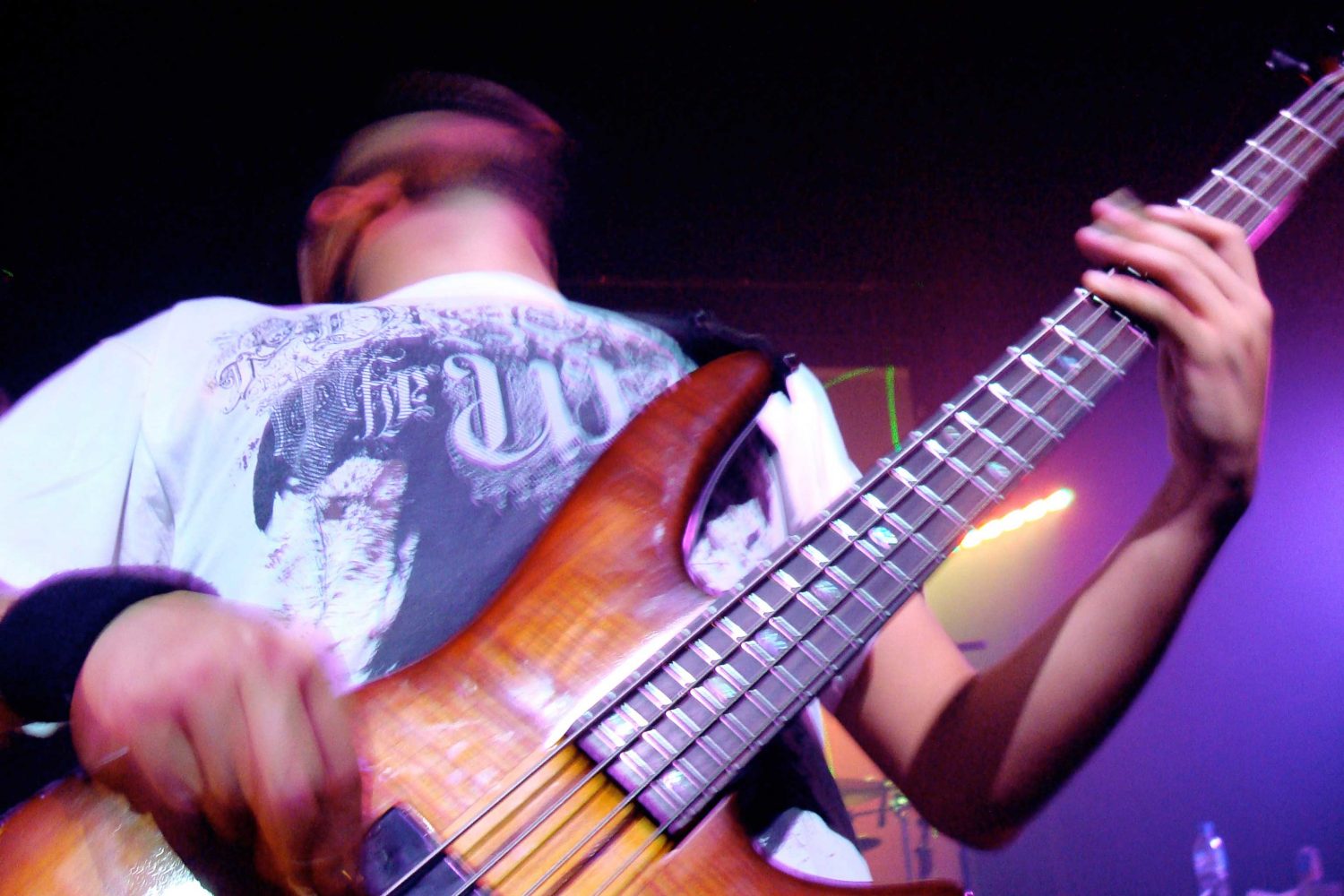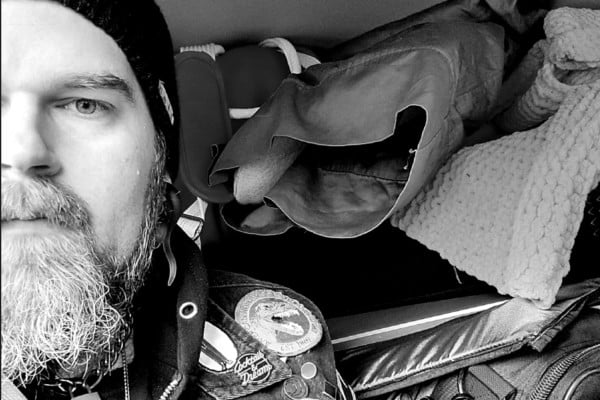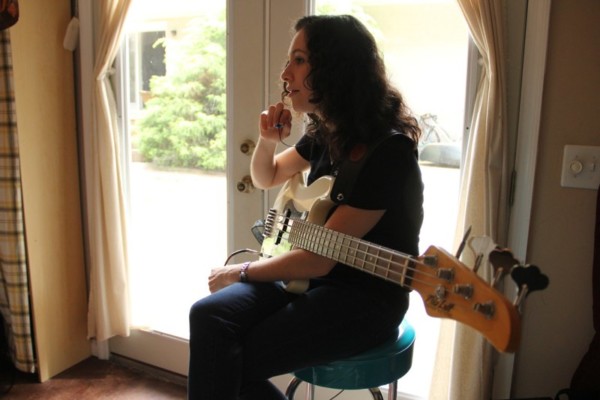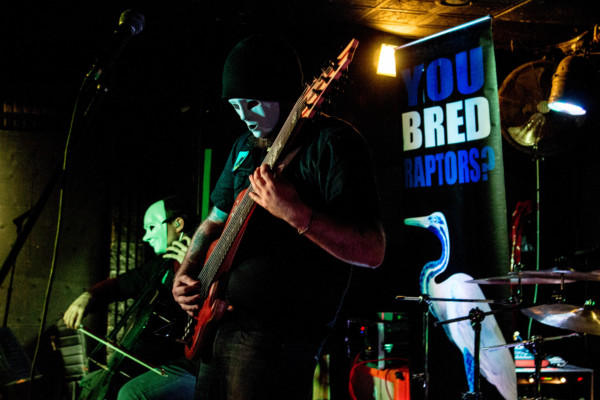When It’s “Go” Time, Make Sure to Hit the Gas!

As so often happens, I was recently having a conversation with a musician before a gig and we both commented on how that conversation would make a great No Treble column.
First a little background: This guy is a great guitarist that I know and play with relatively often. He’s been actively trying to make a mark in the music scene (both locally and abroad). He draws a lot of inspiration from older soul and Motown, primarily from the ’70s. He has a number of solid originals as well as nice arrangements of some “deep cut”-type soul music (i.e.: not the big hits that everybody knows but some very cool B-side material) as well as a few hits thrown in there. We have been playing this material for the better part of a year or so. It is an instrumental project, however, so we are playing tunes that, stylistically, lean heavily on the vocalist to make them happen, but without a vocalist. In other words, single note guitar and keyboard melodies instead of having a killer singer up there.
His question to me was this, (I’m paraphrasing): “I don’t want to be a sideman. I want to be my own artist. How do I get beyond just playing clubs and really make my name as a player”? He has already been doing much of the work that I would normally suggest. Putting well produced video content out there on Youtube and most social media sites, trying to book as many gigs as possible without devaluing the material (not taking every junk gig that comes along but trying to book a lot of double bills with bands that have a following and being thoughtful about booking shows with the potential for a good audience and decent pay for the band, etc.), hiring musicians who can both bring it on stage and have a bit of name recognition “street cred” in town.
The one mistake I thought he was making was playing it safe with his material and not pushing himself enough musically. I want to keep him anonymous, so I won’t be posting any musical examples or videos, but I’ll tell you that he was trying to keep the material inside his wheel-house so he could feel strongly about his ability to execute. Another part of that equation is that he wanted to keep the material easy enough to play and straightforward enough in its arrangements that he could draw on a longer list of potential subs because many of us in the band are pretty busy. He wanted rhythm section subs to be able to come in a play the show without rehearsal, if necessary.
As a result, I felt like he never really made the best use of the folks in his band but, more importantly, it kept the music pretty saccharine: two to three hours of mid-tempo boogaloo and slow jams, without the benefit of any intricate arrangements or real hard-hitting moments where guys got to really PLAY often results in a pretty mellow reaction from the audience. We are a band playing music in which the band is fulfilling its role like side-men backing a vocalist but without a vocalist. No front person, just a group of sidemen. I often felt like it must seem like the singers missed their flight and we decided to play anyway.
My thinking was that, if it’s going to be an instrumental project, the band has to bring the fire. I felt like he was unconsciously keeping things too safe in order to keep himself comfortable. He very much does not just want to be a sideman but, in an effort to keep himself comfortable, he created a project that had no lead voice (instrumentally or otherwise). The arrangements of the covers are nice but they are essentially reharmonizations with some alternate grooves, but the melodies were still just being played as was intended but without the benefit of a vocalist to connect people to the music (ie: single note melodies on guitar).
My advice was essentially this: If you really think it’s “go time,” then we need to give this puppy some gas. We either need a phenomenal singer who can elevate the material we have and make it easier to connect with viscerally, or we need to inject some adrenaline into the music and bump it up a notch. If it’s going to groove, it’s got to groove HARD (not like we are keeping it down so a singer can do their thing on top of it). If somebody is going to solo, we can’t just play lay down the verse groove for 16 bars nd then move to the chorus out before playing the head again over those same parts and at the same intensity. It has to be a journey, have shape and be left open enough that things can grow and evolve in between the melodies.
If you want to make a name for yourself or your band and get noticed amidst a sea of players and bands in the world, then you have to make it fire on all cylinders and bring something new to the game. Playing it safe is a sure fire way to make a life-time of lateral moves in life. In order to evolve and rise above the noise, boundaries need to be explored and pushed, we need to operate outside of our comfort zones and push ourselves to try and be better than we were yesterday. If we want people to take notice, we have to do something new or at least try and do something unique to what’s already there. If we are going to play a Marvin Gaye cover without a vocalist and you want people to notice you and not sound like sonic-wallpaper, then we need to really do something interesting with it. We need to take it somewhere people didn’t expect or give it such a dynamic treatment that it stands out. We can’t just play the tune like side-men, play the melody on guitar and wrap it up (and then wonder why we got such a polite clap from the room of people talking over the band). Without bringing something new to the experience, I felt like we might as well be playing at a wedding, after dinner but before the DJ get’s everybody dancing.
If it’s groove oriented music, people want to dance. If it’s instrumental music, people want to be taken on a journey. The safe zone is for suckers, in this context, I think.
Now, I’m not saying that what the band needs is blistering bass solos and gospel-chopping drummers, but I do think that every band-leader needs to think about the reaction they want from an audience and how to best manifest that. Even something as simple as dropping down to a whisper and giving the keyboardist time to build something up as much as possible before cueing the next section can have a monstrous effect (think Snarky Puppy’s video of “Lingus”, for example. It’s broken down to nothing and the band slowly builds with Corey Henry until it seems like it can’t possibly build anymore and THEN they cue to the next section, wherein he keeps it going. Of course, it helps to have Corey Henry and Darnell Lewis and the rest of them in your band, but you get my point. If that had just been 16 bars of the verse into the chorus to finish the solo, it wouldn’t have NEARLY as impactful, regardless of who was playing it. It’s only because he was given the time to explore, find and build something that it was such a music journey).
If you want to have an impact, especially as an instrumental band, you have to be thoughtful about how one creates the space for that impact to manifest! My advice was essentially that. Think about the reaction you want from the audience and then think about how to manifest it, regardless of whether or not a sub drummer could catch the arrangement, etc… Play the music in a way that will manifest that impact, play with the people who have the ability to manifest that impact, and worry about how your pool of available players gets shallower as a result when the time comes. Bring fire and if you can’t find the right drummer that night, then don’t take the gig. The band will be more in demand if it gets a visceral reaction from the audience anyway, which will give you better booking leverage.
There is nothing wrong with instrumental, mid-tempo boogaloo’s but you also have to realize that you may have a harder time filling the club and getting 200 people to freak out a bit and post on facebook about how they lost their minds the night before. We have to be realistic about the reaction we want and how that leverages against what we provide. Yes, we play some great tunes but we do them without a vocalist so it’s up to the band to bring some fire and if the arrangements don’t leave room for it or don’t have built in fire? Then it’s just groovy background music.
What are your thoughts and experiences? Please share in the comments below.
Have a question for Damian Erskine? Send it to [email protected]. Check out Damian’s instructional books, Right Hand Drive and The Improviser’s Path.



